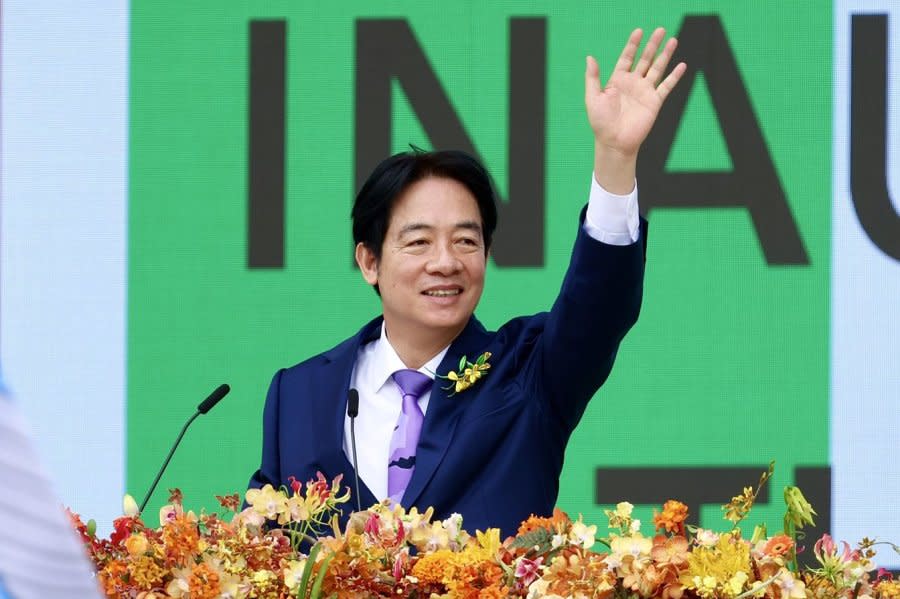Newly inaugurated Taiwan president calls on China to end military intimidation

- Oops!Something went wrong.Please try again later.
May 20 (UPI) -- Incoming Taiwan President William Lai Ching-te used his inauguration Monday to urge China to exchange its intimidatory tactics for peaceful co-existence and to respect the democratic decision of Taiwanese voters.
"I hope that China will face the reality of our existence, respect the choices of the people of Taiwan, and in good faith, choose dialogue over confrontation, exchange over containment," Lai said in a speech at his swearing-in ceremony.
"I also want to call on China to cease their political and military intimidation against Taiwan, share with Taiwan the global responsibility of maintaining peace and stability in the Taiwan Strait as well as the greater region, and ensure the world is free from the fear of war."
He called on China to make a start by permitting the resumption of two-way tourism and allowing Chinese students to enroll in degree courses at Taiwanese universities.
Lai insisted Taiwan would never give in to threats but would not provoke China either, saying his government would maintain the status quo and adhere to the Four Commitments for Peace of "strengthened national defense; improved economic security; stable and principled cross-strait leadership and values-based diplomacy."
However, he warned that Taiwan should not be under any illusion that giving in to China's demand to renounce independence would alter China's ultimate goal of re-unification, potentially by force.
"So long as China refuses to renounce the use of force against Taiwan, all of us in Taiwan ought to understand, that even if we accept the entirety of China's position and give up our sovereignty, China's ambition to annex Taiwan will not simply disappear," said Lai.
Hailing the partnership between the people of the United States and Taiwan, U.S. Secretary of State Antony Blinken warmly congratulated Lai, commending him for his efforts in strengthening U.S.-Taiwan relations during his eight years as vice president and prime minister.
Washington looked forward to working with him "to advance our shared interests and values, deepen our longstanding unofficial relationship, and maintain peace and stability across the Taiwan Strait," Blinken said in a statement.
Beijing, which has railed against the rise of Lai's Democratic Progressive Party which it sees as pro-independence, reacted by declaring Taiwan independence "a dead end".
"Regardless of the pretext or the banner under which it is pursued, the push for Taiwan independence is destined to fail," said Foreign Ministry spokesperson Wang Wenbin.
China's Commerce Ministry timed the inauguration to unveil new sanctions against U.S. defense companies Boeing, General Dynamics and General Atomics for sales of weapons systems to Taiwan, while the Chinese embassy in London held a press briefing asking the British government not to acknowledge the inauguration of a new president.
Beijing mounted a campaign to try to derail Lai's campaign for the presidency culminating the day before his victory in the Jan. 13 election with a warning from the Defense Ministry that any steps toward independence would be crushed.
Incursions by Chinese warships and aircraft into Taiwan waters and airspace have since seen a dramatic rise.

